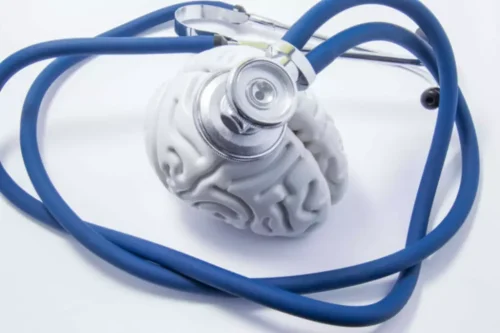
Recovery also involves learning to navigate relationships in a healthier way. This might mean developing empathy, learning to communicate more effectively, and valuing genuine connections over superficial admiration. It’s like learning a new language – at first it feels awkward and unfamiliar, but with practice, it becomes more natural. For narcissists in recovery, learning to build genuine self-esteem rather than relying on external validation is a crucial part of the journey. This might involve challenging long-held beliefs about self-worth and learning to value authentic connections over admiration. It’s like learning to see clearly after a lifetime of looking through distorted lenses.
The Vicious Cycle: When Narcissism and Addiction Collide
Alcoholics are not always narcissists, and narcissists aren’t always alcoholics. Narcissistic personality disorder and alcoholism are co-occurring disorders. Co-occurring disorders are substance use disorders and mental disorders that exist at the same time. The intersection of narcissism and alcoholism can have severe impacts on both the individual and their relationships. Understanding these consequences is crucial for recognizing the importance of comprehensive treatment. Partners or family members may also suffer from addictions due to the mental abuse suffered at the narcissist’s hands.
- The purpose of these groups is to provide a safe and supportive environment where you can share your struggles and receive encouragement and guidance from others.
- According to recent studies, approximately 14.5 million Americans aged 12 and older had AUD in 2019, highlighting the widespread nature of this issue.
- They are extremely self-interested and often don’t think of other people’s feelings and emotions.
- Each person needs a different treatment method depending on their unique situation, and as such, not everyone will have the same treatment program.
What are the symptoms of each condition?
Abuse is capable of disguising itself as love, and narcissists can be great attractors of victims. Those suffering from psychological abuse by a narcissist assume that this is love and seek ways to cope. When AUD and NPD occur together, it https://ecosoberhouse.com/ can increase a person’s hostility and aggression. This can make treatment more challenging than it would be to treat each issue separately. The underlying cause of each is sometimes not the same, but the behaviors can seem very similar.
The Narcissist’s Relationship With Alcohol
NPD and AUD frequently co-exist and can increase the effects of each other. People with a pattern of narcissism often turn to alcohol to reinforce a false sense of grandiosity. People with AUD, also known as alcoholism, can narcissism and alcoholism display patterns of narcissism, including self-absorption and an underlying craving for admiration. In this section, we will explore some of the factors that can contribute to the development of narcissism and addiction.
It can be a part of celebratory occasions and fun, or an occasional way to unwind after a long day. For some people, alcohol use becomes regular and problematic and may lead to dependence. The outlook of co-occurring NPD and AUD may depend on the severity of each condition and how each individual is functioning.

How does it link with addiction?
It is also possible that grandiose narcissism gives one the illusion of invulnerability, especially when drunk. Thus, by not learning from negative experiences, they might continue to see alcohol consequences as positive. Although the overall R2 was small for problem evaluations, this result is novel since no other study has examined a narcissist’s perceptions of alcohol-related problems. In addition to problem recognition, important factors that might maintain or change drinking behavior are expectancies and evaluations of problems. In his book, The Narcissist You Know, Joseph Burgo includes the “Addicted Narcissist” as one type of Extreme Narcissism. Alcoholic narcissism, a combination of narcissistic personality disorder (NPD) and alcohol addiction, can have a severe impact on a person’s self-esteem and empathy.

Is there a link between narcissism and addiction?

Their behavior may include exploiting others for personal gain, displaying little empathy for others, and reacting with anger or aggression when challenged. The authors of the review also suggest that people with narcissism may use drugs to achieve a state of superiority above others while also lessening feelings of inferiority, which fluctuating self-esteem can cause. Our approach centers on treating people with the same kindness and respect that we value for ourselves.
Take the First Step Towards a Healthier Life
Their behavior can include withdrawing from social interactions, displaying passive-aggressive tendencies, and struggling with chronic feelings of emptiness and depression. A 2018 meta-analysis looked at the results of 62 studies and found that grandiose narcissism has a moderate association with increased social network use. It found that individuals with grandiose narcissism have more friends and followers, post more often, and spend more time on social media than other people. A 2014 study looking at infidelity also found that people with narcissism were more likely to be unfaithful during a relationship.
- They may also have an exaggerated sense of their own importance and abilities.
- This lack of empathy can also contribute to substance abuse, as the individual may not consider the impact of their drug or alcohol use on those around them.
- It’s like watching an emotional rollercoaster, with sharp turns and steep drops.
- Their self-absorbed behavior can make it difficult for them to truly connect with others, leading to superficial relationships that lack depth and meaning.
- If you see your loved one struggle and don’t know how to help them, outpatient detox rehab in PA can provide an important first step.
- Regardless of what’s going on in their lives, alcoholics feel entitled to a drink.
- The researchers found that grandiose narcissism, i.e., overt narcissism, was a positive predictor of alcohol consumption.
- Along with denying the existence of their drinking problem, alcoholics refuse to take responsibility for their harmful behaviors.
- While narcissistic traits can cause problems in relationships and other areas of life, they do not necessarily indicate a larger mental health issue.
Think of it as wearing a mask – a carefully crafted persona designed to project an image of perfection, superiority, and invulnerability. But beneath this mask often lies a fragile ego, desperately seeking admiration and validation from others. If the person does not want to enter treatment or change, there may not be hope for healing.

